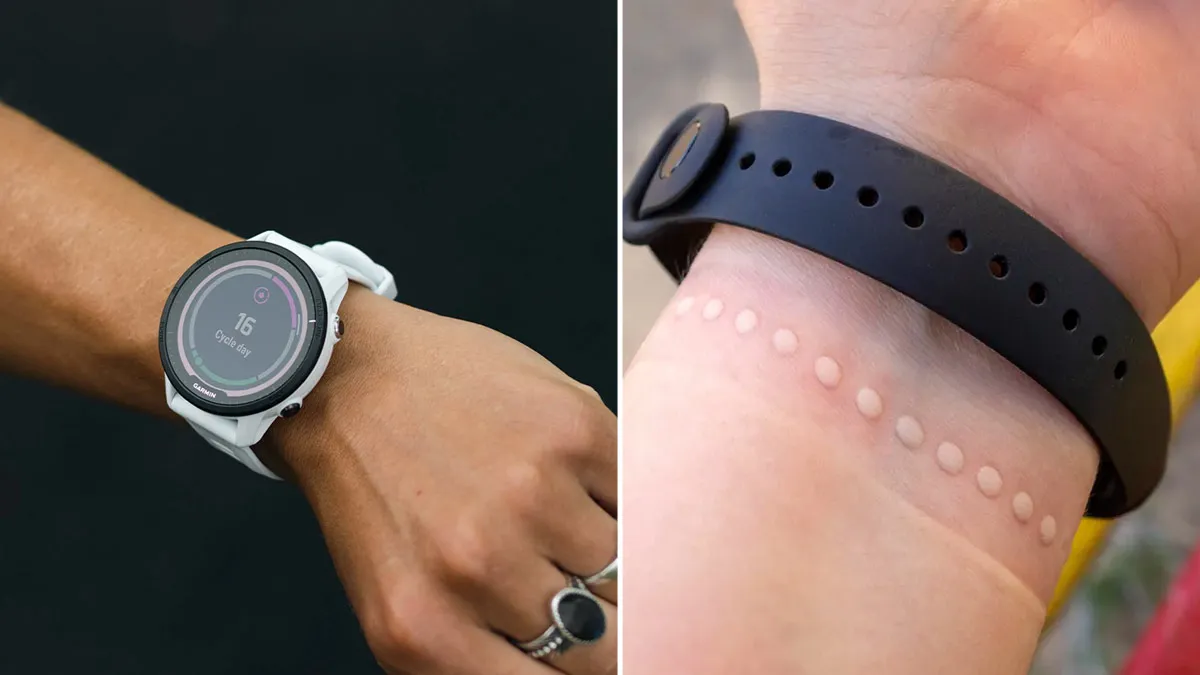
Fitness watches are the tiny wrist dictators that guilt-trip you into taking 10,000 steps while silently judging your 3 PM couch slump. We strap them on like life-saving devices, convinced a snug fit equals better heart rate tracking, only to end up with a wrist that feels like it’s in a mini-vice grip. But here’s the twist: your quest for perfect data might be squeezing more than just your step count. An expert warns that tight fitness watches can compress nerves, leading to tingling, numbness, and even weakened grip. Read ahead to know if your watch is a health ally or a hidden hazard. Let’s decode the risks and fixes.
Table of Content:-
How Tight Watches Turn Into Nerve Troublemakers
View this post on Instagram
Your wrist isn’t just skin and bones; it’s a highway for nerves like the median nerve, which runs through the carpal tunnel. “A tight watch strap compresses this nerve, reducing blood flow and irritating sensitive tissues,” explains Dr Anuj Kumar Kadian, Orthopedic Surgeon, Newlife Multispeciality Hospital and Trauma Centre, Gurugram. Over time, this pressure can mimic carpal tunnel syndrome, causing numbness in your thumb, index, and middle fingers. Worse? Constant vibrations from notifications add repetitive stress, worsening inflammation.
ALSO READ: Is It Safe to Take Painkillers After A Hangover? Expert Weighs In
Accuracy vs. Comfort: The Tightness Myth
Many believe a tight watch ensures better heart rate and step tracking. But Dr. Kadian debunks this: “Optical sensors need skin contact, not a tourniquet.” Most watches work fine with light contact, and overtightening can distort readings by restricting blood flow. For instance, a 2020 Forbes article noted that snug bands might cause wrist pain without improving accuracy, as sensors rely on light penetration, not pressure.
Guide for Smartwatch Users
- The One-Finger Rule: Slide a finger between the band and your wrist. If it doesn’t fit, loosen the strap.
- Switch Wrists: Alternate between left and right wrists daily to reduce constant pressure on one nerve pathway.
- Stretch Breaks: Every few hours, rotate your wrists and stretch fingers to relieve tension.
- Vibration Alerts: Lower notification frequency to minimise repetitive nerve irritation.
When to Sound the Alarm
Persistent tingling, nighttime numbness, or weakened grip (e.g., struggling to open jars) are red flags. “Don’t ignore symptoms,” warns Dr Kadian. “Early intervention with rest, splints, or anti-inflammatory meds can prevent permanent nerve damage.”
ALSO READ: Are You Drinking Directly from Cans? Expert Shares How It Could Be Playing with Your Health
Final Verdict: Track Smart, Not Tight
Fitness watches are fantastic tools when used wisely. A balanced approach ensures you reap benefits without compromising nerve health. While fitness watches help us stay on track with our health goals, wearing them too tightly can cause nerve compression, leading to discomfort, numbness, and even weakened grip. Experts emphasise the importance of comfort over tightness, following simple tips like the one-finger gap rule, switching wrists, and stretching regularly can protect your nerves without sacrificing accuracy. Remember, your smartwatch should support your health, not harm it.
Also watch this video
How we keep this article up to date:
We work with experts and keep a close eye on the latest in health and wellness. Whenever there is a new research or helpful information, we update our articles with accurate and useful advice.
Current Version